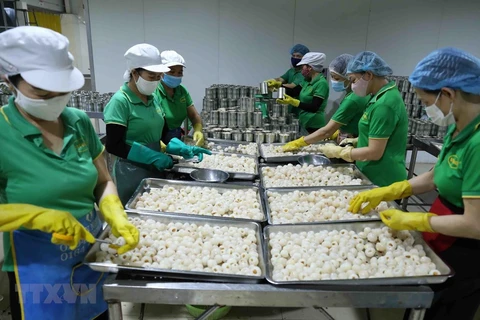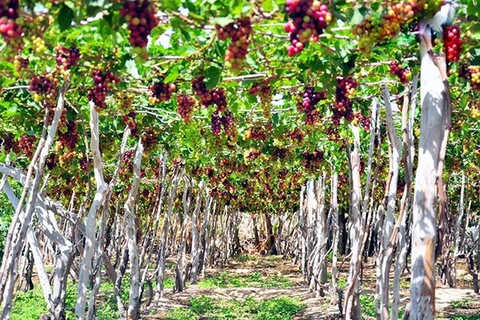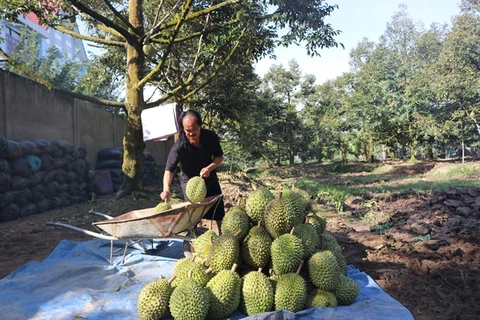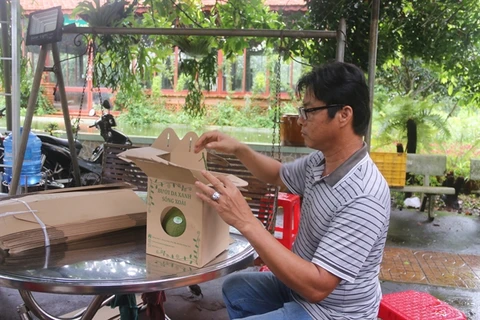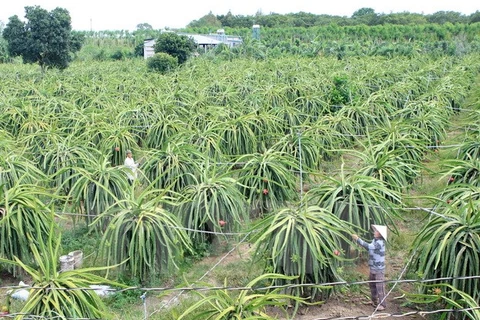 A farmer covers mangoes with paper bags in a farm in Cai Be district, the Mekong Delta province of Tien Giang (Photo: VNA)
A farmer covers mangoes with paper bags in a farm in Cai Be district, the Mekong Delta province of Tien Giang (Photo: VNA) Hanoi (VNA) – The fruit farming area in the Mekong Delta, the largest agricultural hub in Vietnam, is set to be expanded by 150,000ha between now and 2030 to help with local agriculture’s sustainable development and adaptation to climate change.
The country earned some 240 million USD from fruit and vegetable exports in July, raising the seven-month figure to 2 billion USD. The revenues respectively fell 1.8 percent and 12.3 percent from the same period last year.
The Vietnam Fruit and Vegetables Association attributed the decline to the COVID-19 pandemic, which has discouraged countries’ import of these commodities.
However, despites export difficulties, fruit farming is still a good source of income for farmers as its profit is about three to eight times higher than that from rice cultivation, Mekong Delta localities’ departments of agriculture and rural development noted.
According to the plan to sustainably develop and adapt the region’s agriculture to climate change until 2030 with a vision to 2045, rice production will be reduced while fruit farming increased.
In particular, the land under fruit trees will be expanded by 150,000ha in areas with inefficient rice cultivation to reach about 650,000ha by 2030.
The Ministry of Agriculture and Rural Development said the sector will develop and put into use climate change-resistant plant varieties with high yield and quality. It will also assist local farmers to apply sustainable farming practices and cut down costs while boosting farmers and cooperatives’ connectivity with businesses./.
